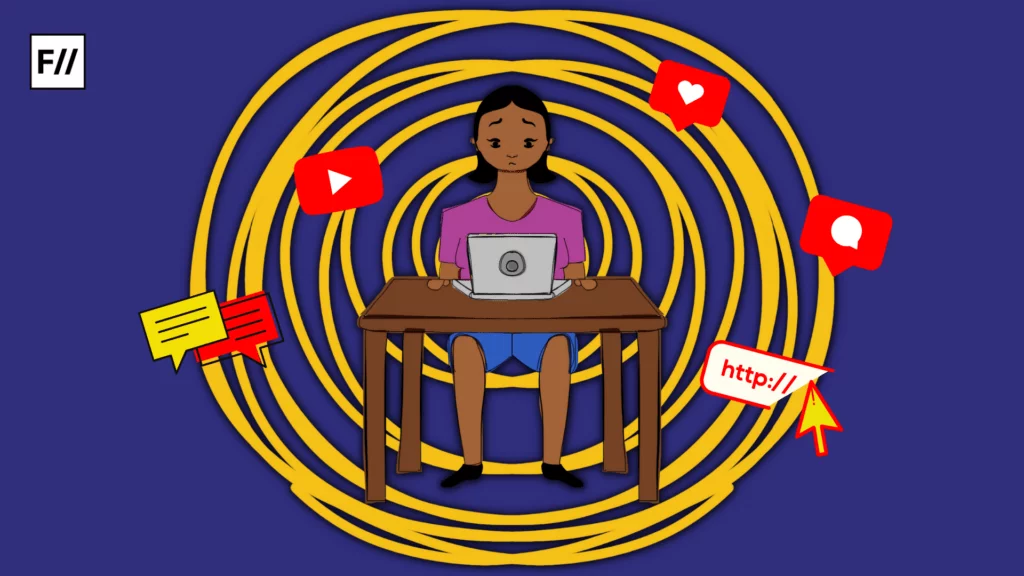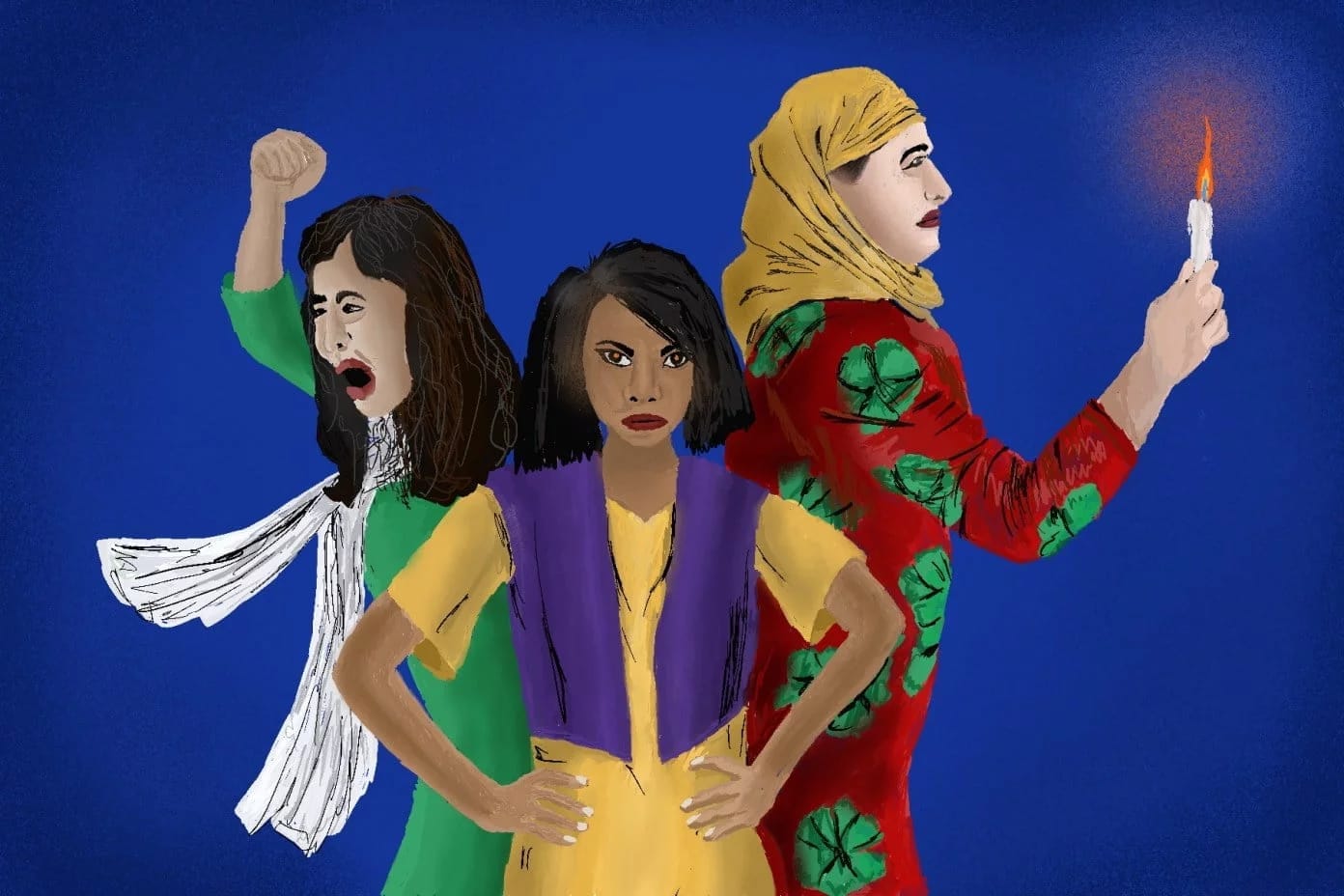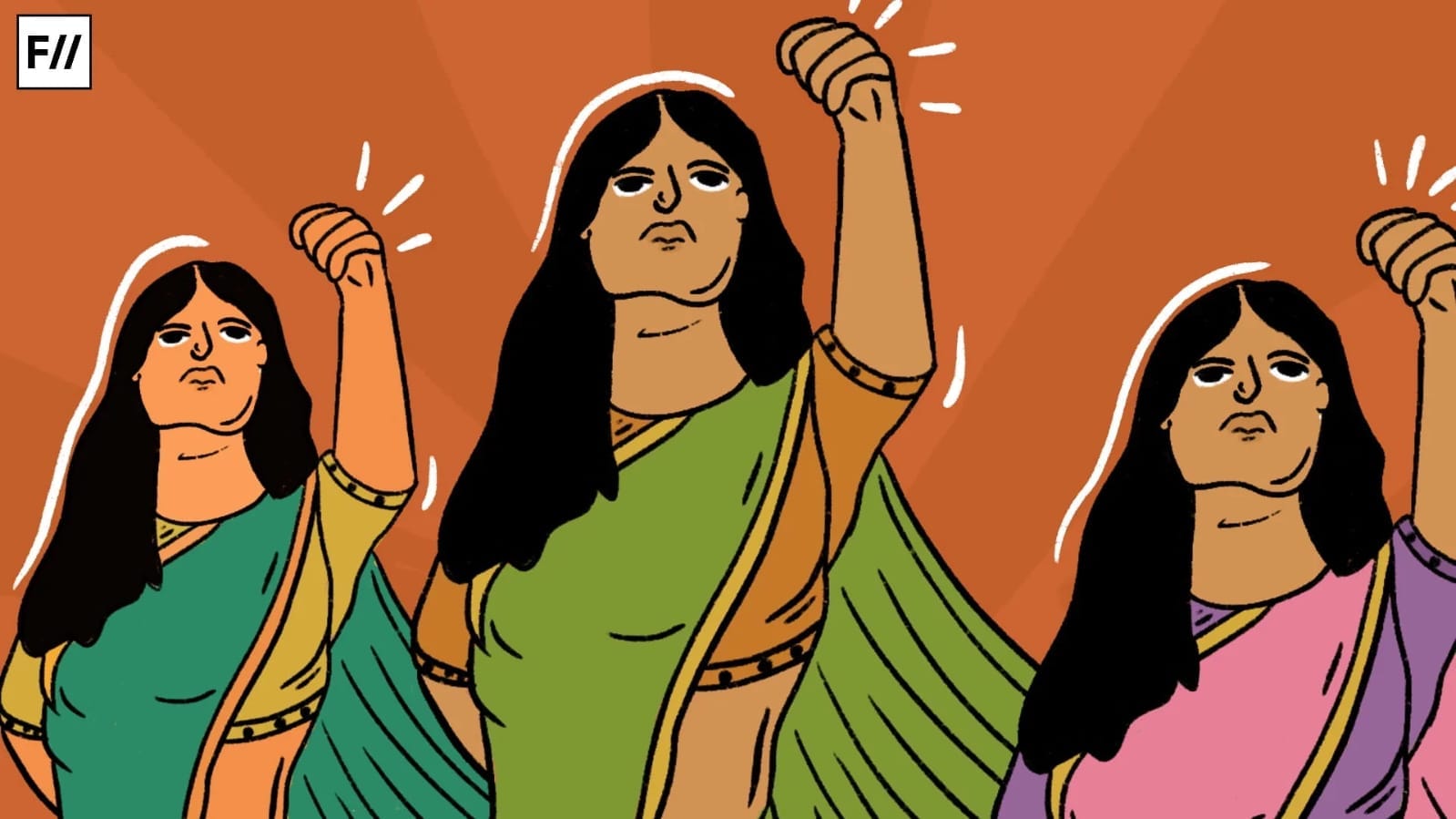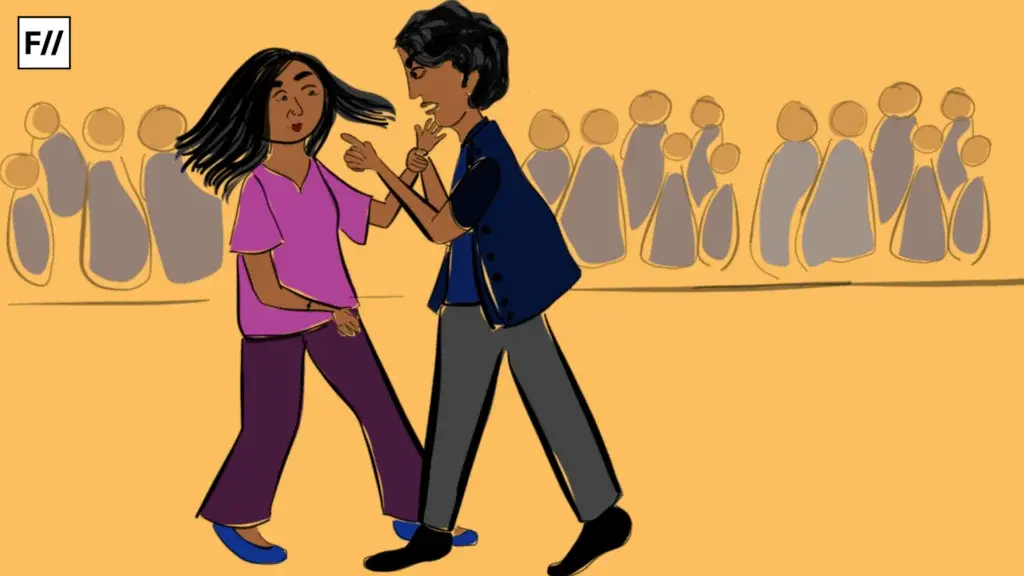Gender-based violence is a global pandemic, a seemingly bottomless pit of heinous crimes, with solutions few and far between. South Asian socio-economic structures, gender norms, and patriarchal traditions create a solid foundation for gender-based violence. Lifetime intimate partner violence is 35% higher in South Asia than the global average. While we have had a steady discourse about domestic violence and public safety issues concerning gender-based violence, the growing issue of technology-facilitated sexual and gender-based violence (TFSGBV) is majorly ignored. What is the threat of TFSGBV? Can policy help or is the answer somewhere else?
The quiet evil of TFSGBV spreading fast
TFSGBV refers to violence occurring or amplified through digital tools and platforms. Their manifestations are many and continue to develop every day as we stand at the cusp of the generative AI tools boom. Existing forms include – zoom-bombing or zoom-flashing wherein intruders in online gatherings post racist, sexist, or pornographic materials. Image-based abuse includes non-consensual creation, distribution, or threats involving images or sexual material – with AI image morphing has been escalating. TFSGBV can lead to physical and sexual harm, while the more indirect and invisible effects are psychological, emotional, economic, or social harm.
TFSGBV can lead to physical and sexual harm, while the more indirect and invisible effects are psychological, emotional, economic, or social harm.
Women and girls are disproportionately affected by TFSGBV, exacerbating other forms of violence that already plight the community – from harassment to intimate partner violence. Queer communities, widely marginalised in the real world across South Asia, have been known to seek refuge in the digital world – be it for support or expression. TFSGBV is a much more dangerous threat to such marginalised communities as we have been unable to bolster ground support for them – leaving them cornered in the digital space. Digital spaces have not only created new forms of expression and commerce but also introduced new forms of abuse, adding to the existing challenges in the battle for gender equality and safety.

TFSGBV is a nascent field that demands more attention and research. There are inconsistencies in its definition and measures as organisations still grapple to understand the extent of it. It is difficult to measure and track the impact of TFSGBV as terms like cyber violence, cyber aggression, digital abuse, or online victimisation are used instead. In 2022 United Nations recognised TFSGBV as a global issue that needs an immediate international response.
The 2023 report “Exposing Technology-Facilitated Gender-Based Violence in an Era of Generative AI” brought focus to how emerging technologies have amplified gender-based violence, accelerated by generative AI tools. While it is important to identify and categorise the forms of violence perpetrated on digital platforms, all would be naught without policy recommendations and actionable measures.
Solidarity networks, CSOs and community-based approach
While globally TFSGBV is beginning to gain traction it is important to study the rise of this violence in South Asia, coloured by its cultural context. TFSGBV is often interchangeably used as online gender-based violence, cyber violence, online harassment, or cybercrime. There is a lacuna concerning TFSGBV in both the research and advocacy space. The social divides in countries like India, based on caste, religion, or socio-economic positions, get exacerbated online. In many ways, it is a continuation of offline violence against vulnerable communities.
Solutions for South Asia must take into consideration the many intersections that these vulnerable communities occupy. The existing social divisions also result in unequal access to tools and safeguards against online violence. This makes it crucial to bring community-based solutions alongside the policy-level interventions being actioned by global networks. India, for example, has the IT Act and sections on cyber harassment in the criminal code that address aspects of TFSGBV but implementation and enforcement delays and barriers dim their effectiveness. Enhanced research about TFSGBV in South Asia will help organisations and practitioners formulate policy interventions and advocacy.
Enhanced research about TFSGBV in South Asia will help organisations and practitioners formulate policy interventions and advocacy.
South Asian countries have seen the positive effects of a community-based approach in promoting health and safety. There are countries in this area that have regressive and restrictive policies that limit access to solutions and safety – solidarity networks play an irreplaceable role in these cases. The International Planned Parenthood Federation (IPPF) has been leading the fight against SGBV in the subcontinent and one of their most effective intervention models is embedded in the local.

Their Member Associations (MAs) are based within local communities, and they work to prevent violence and provide clinical care for SGBV using gender-responsive principles. Community-based approaches have proved to reduce health compromises and provide life-saving services. With easier access and a local network, the uptake of the services is also higher. This approach is especially popular in resource-poor settings as it provides an integrated service at a single location. Collaboration among providers also ensures comprehensive care and support.
Women-based grassroots civil society organisations (CSOs) have proved to be effective in deploying necessary measures to prevent and combat GBV. CSOs understand community-specific contexts and challenges, ensuring culturally relevant, timely interventions. Safe shelters, psychosocial counseling, medical care, legal aid, and livelihood training have been some proven holistic services that have been effective.
Global solutions, local action – comprehensive tact
Local networks are very important for diverse demographics of South Asian countries as they allow targeted interventions, ensuring accessibility for specific groups. Despite evidence of better response, there is insufficient research on community-based sexual violence responses. There is an urgent need for in-depth qualitative studies to understand this approach and make necessary modifications for specific areas – like TFSGBV.
Information and Communication Technologies (ICTs) have been identified to play a critical role in improving community-based responses to SGBV. Considering TFSGBV exists in the digital space it would be beneficial to test ICT’s advantages in combating it. One of the problems that community-based solutions face is the lack of robust testing. These programs also require scaling and integration into larger frameworks. Hence a collaborative effort between policy interventions and community-based solutions is necessary to combat the current scenario.
With the rising prevalence of TFSGBV, which continues to transform rapidly with generative AI, the need of the hour is comprehensive strategies.
With the rising prevalence of TFSGBV, which continues to transform rapidly with generative AI, the need of the hour is comprehensive strategies. These strategies can neither be wrought nor deployed in silos. Law enforcement, tech companies, policymakers, and civil society (through solidarity networks, CSOs, and community-based approaches) would have to come together and make collaborative efforts to create safer digital spaces. It is of utmost importance that policy interventions are not limited to state governance but are employed within the private companies that are developing the digital space.

Last month was the 30th anniversary of the Beijing Declaration and Platform for Action, a landmark global commitment made at the Fourth World Conference on Women in 1995. At Beijing 30+ the global commitment to prevent violence against women and girls (VAWG) was reasserted. Along with issues like climate change, urbanisation, and youth health, TFSGBV was highlighted as a pressing issue that needed attention. Member states and private sector players were urged to act on the priorities of the platform. Beijing+30 reaffirmed the global promise for women’s freedom from violence.
At the forefront of priorities are – fortifying legal frameworks, amplifying support for survivors, ensuring accountability for perpetrators as well as the platforms, empowering feminist movements, formulating gender-sensitive strategies, and deploying collaborative solutions that bring both policy and community together.
This article is written by Sohini Sengupta as a part of the collaboration for #16DaysofActivism with IPPF South Asia Region.
About the author(s)
She/they is an editor and illustrator from the suburbs of Bengal. A student of literature and cinema, Sohini primarily looks at the world through the political lens of gender. They uprooted herself from their hometown to work for a livelihood, but has always returned to her roots for their most honest and intimate expressions. She finds it difficult to locate themself in the heteronormative matrix and self-admittedly continues to hang in limbo




